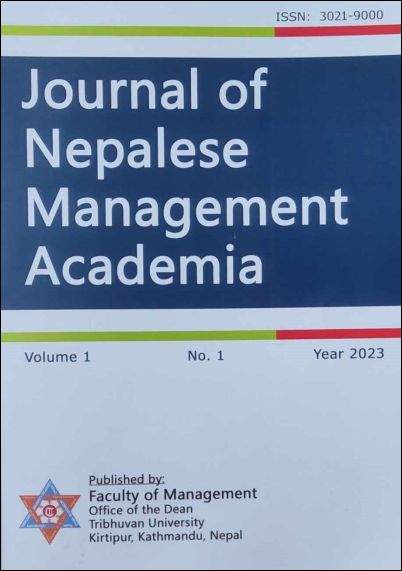Effect of talent management practices on talent retention in higher educational institutions of Nepal
DOI:
https://doi.org/10.3126/jnma.v1i1.62030Keywords:
Talent managment, Talent attraction, Talent retention, Talen motivationAbstract
This paper concerns answering how talents are managed in the dimensions of attracting, developing, and motivating, as well as examining the effect of these dimensions on retaining talents. Empirical shreds of evidence have indicated the positive and significant effects of various talent management practices on different aspects of performance. The absence of studies on talent management practices focusing on attracting, developing, and motivating talents and analyzing their effect on retaining them prompted this study. The study uses descriptive and causal-comparative research designs to describe and analyze the causal relations among the study variables. Quantitative data is collected from 132 respondents using a questionnaire survey developed based on intensive reviews. The findings of the descriptive analysis indicate moderate efforts given by the institutions managing talents. The correlation result shows positive and significant associations between talent retention and talent attraction and development, as well as talent motivation. The findings from multiple regression analysis showed a positive and significant effect of talent attraction and development on talent retention. However, talent motivation showed no significant effect on talent retention. The findings may have practical uses for administrators to manage talents by evaluating their actions, strategies, and policies to retain talented employees and deal with a surplus or shortfall of a talented workforce. The findings provide new insight into the field of study of talent management and retention. Particularly studies focusing on the areas of attraction, development, motivation, and retention of talents in diverse organizational settings.




